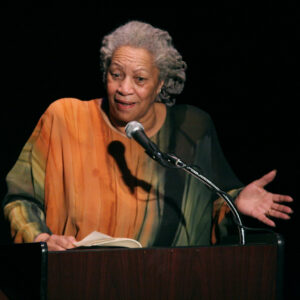
The Dark Side of Longform Journalism
Luke Mogelson on Waiting for the Bad to Happen
In the spring of 2013, I spent a month in the Syrian city of Aleppo, reporting an article about the protests that had become an uprising that had become a war. At the time, Aleppo was divided roughly in half, one side held by the rebels, the other by the regime. Life on the rebel side—the only side I had access to—was perilous and miserable. Almost every day, regime jets and mortars and missiles randomly obliterated civilian targets: homes, markets, hospitals, and schools. Even so, many residents of the rebel side continued to travel to the regime side in order to work and visit relatives. To reach the necessary checkpoint, these people had to cross a no-man’s land that exposed them to regime snipers who made a sport of gunning them down every now and then. Among those who managed to pass the checkpoint, some were later detained, tortured, and executed by agents of the regime’s various security services.
There was a river that snaked through Aleppo from the regime side to the rebel side, and occasionally bodies dumped in the former would wash up in the latter. People whose loved ones had disappeared would gather on the banks, in the shadow of a bridge that blocked the sightline of the snipers. They would stare into the murky water. They would stare, and they would wait. Over the course of several weeks, along with my interpreter and a photographer, I visited that bridge daily, at an hour when the water was highest, the current strongest. I wanted to talk to the people waiting for the corpses of their family members—but even more than that, I wanted to be there, with them, when a corpse arrived. In contrast to the journalist who recreates scenes retrospectively, via interviews, I do my best to observe things firsthand. For a host of reasons—the weird and true detail, an unsettling immediacy, the otherwise forgotten humor—that is the kind of non-fiction I most enjoy reading, and so that’s the kind I’ve tried to write.
This approach, despite its obvious journalistic advantages (you’re less likely to get stuff wrong), can frequently put you in awkward positions. You can find yourself, for instance, visiting a river every morning hoping to find a murder victim. Most foreign correspondents I know would probably object to my use of that word, “hoping.” They would probably say that we don’t want bad things to happen; we just want to witness them if they do. It’s a legitimate distinction, but one that, in the field, can feel semantic. In the field, we are actively, aggressively seeking to see with our own eyes the reality of war, famine, disaster—and who isn’t at least somewhat gratified when he discovers what he’s sought, at least somewhat disappointed when he doesn’t? I first became aware of this predicament when I was living in Afghanistan. In those years, 2011 to 2014, the public affairs apparatus of the U.S. military was working hard to orchestrate an optimistic—and deeply fanciful—perception of the war’s progress so as to characterize our withdrawal from the country as a “transition,” not a retreat. The effort involved preventing journalists from embedding with American units deployed to areas overwhelmingly dominated by the Taliban. For me and my colleagues in Kabul, one way around this cynical program of obfuscation was to embed with the Afghan security forces. Now, imagine you’re on a mission with a platoon of Afghan soldiers in a valley that you know to be under the control of insurgents, and imagine your task is to show that fact. On the one hand, you don’t want the soldiers to be ambushed—what kind of person would want that?—but on the other, the only reason you came to that valley in the first place was the high likelihood that they’d be ambushed and your desire to be with them when they were. Which is to say, I think, that you do want them to be ambushed.
Or, as I’ve often done, consider this: When I was covering the Ebola epidemic in West Africa, was there a real difference between my wanting to get to the village or hospital where people were dying terrible deaths, and my wanting people to be dying terrible deaths in whatever village or hospital I happened to be going to? Every assignment presents some variation of that question. While reporting my last piece, in Iraq, I watched a fatally wounded man get dragged into a street and taunted and abused until he died. In a sense, the ignominious killing of that man was exactly what I’d been looking for. In a sense, I was happy to have found it. I knew, after all, that it was going to make my article better. That’s why I pushed my way to the front of the crowd to record it with my phone: I was anticipating the formal challenges I’d encounter when I later sat down to write.
I have the feeling that when people think of journalists who experience the suffering of others in cold-hearted aesthetic terms, they mostly think of photographers—Kevin Carter, for example, taking twenty minutes to frame his shot of the vulture and the starving girl. Correspondents are largely spared the hypocritical indignation that Carter and other photographers have inspired. Correspondents, the logic must go, do their aestheticizing after the suffering and away from it—something somehow less unseemly. Less unseemly, maybe, but untrue. The composition of the scene begins even as the scene unfolds. While the man dies, the correspondent imagines the sentences with which he will describe it and gathers the information he will need to write them.
So far, the issues I’ve laid out here are entirely internal and private issues (whether or not some part of me wants a corpse to appear in a river does not make it any more or less likely to appear; whether or not I experience other people’s suffering in cold-hearted aesthetic terms does not ease or aggravate their suffering), and therefore, in and of themselves, I’d argue that they hardly matter. If I was confident about the purpose and value of the articles for which I continue to put myself in these awkward positions, I honestly don’t think they would feel awkward at all; such articles would, I imagine, mollify whatever personal discomfort I might have while reporting them and relieve me altogether of this annoyingly persistent itch to interrogate my process, to suspect it. The fact that my personal discomfort has not been mollified, however, would seem to suggest that I’m not confident about the purpose and value of my articles. And, well, unlike my private and internal issues, that does matter.
Why does it matter? For one, my articles, with the rare exception, all depend on the cooperation of their subjects, and this cooperation is generally offered on the basis of a quite specific understanding of their purpose and value: the subject generally believes that the article will benefit him in some practical way. Sometimes he expects to profit from the article directly. I recently wrote about a Honduran man who’d been deported from the U.S. after living there for many years and was trying to get back to the family he’d left behind. A sympathetic portrait of his situation in a major American magazine might, I think he thought, improve his chances of obtaining a visa. More often, though, what the subjects of my articles are after is a change in some component of American policy that touches their lives. The Afghan commander wants the U.S. to supply his army with heavy weapons; the Syrian civilian wants the U.S. to stop the regime from bombing his city; the Liberian patient wants the U.S. to send more doctors; the Kurdish fighter wants the U.S. to back his people’s bid for independence; and so on. That my article might help him get what he wants is an illusion of which I always do my utmost to disabuse the subject. And yet I have to acknowledge that whatever disclaimer I insist on reciting is finally, at heart, a disingenuous one—disingenuous because I know all the while that the subject, deep down, doesn’t buy it. Of course he doesn’t. If that were really true, he must think—if there really wasn’t much hope of my article accomplishing anything—why would I be there, in that perilous and miserable place, wasting my time and his?
A truly candid disclaimer would require me to inform the subject that not one of my articles has resulted in a policy change or improved in any meaningful way the lives of the people whom it was about. It would require me to reveal that the Afghan commander I profiled never received the weapons he needed and was killed while on patrol a couple of years later—or that the Honduran man, having failed to get a visa, tried to return to the U.S. illegally and was again arrested and deported before he could reunite with his wife and children. But more importantly, a truly candid disclaimer would require me to inform the subject that helping him is not even my objective to start with. Influencing policy is not my objective. Making any real difference of any sort isn’t my objective, can’t be my objective, because if it were, I would have switched to a different line of work by now.
I should probably say here that I’m talking about a particular kind of journalism, so-called “long-form” or “narrative” journalism, and within that genre a still smaller sub-genre that you could call on-the-ground reportage. Newspaper journalism, as well as magazine journalism of the investigative variety, can surely change institutions, change lives, change the world—and, I assume, that’s what the practitioners of such journalism typically aspire to. For me, it’s different. While I sometimes accidently stumble on systemic injustice (it’s difficult to avoid in the places where I work), identifying and revealing it is seldom my primary aim; that’s seldom what I set out to do. Rather, what I set out to do is illustrate, as best I can, the lives of people who otherwise tend to appear in newspaper and investigative journalism as clichés or statistics (or not at all). On the surface, this seems an honorable enough ambition. But it gets a little fuzzy, I think, when you take into account who these people are, and for whom I write about them.
In my case, the audience is usually the readers of the New Yorker or the New York Times Magazine, the subjects usually vulnerable inhabitants of the most impoverished and violent corners of the world. Although the subjects may have heard of the New Yorker and the New York Times Magazine, they almost never read them or know anyone who does. There’s an awful word that Western media folk sometimes use to describe my kind of journalism that’s meant to be flattering but always makes me cringe precisely because it expresses so well this gap between audience and subject, and the conflict therein. The word is “humanizing.” By my own standards, if my article has succeeded, if I’ve done what I set out to do, I have to some degree “humanized” a situation—a conflict, a crisis—for the reader. But of course the subject doesn’t feel any more human for the experience; the subject, in most cases, doesn’t even realize he’s been made more human in the eyes of the subscribers to the New Yorker and the New York Times Magazine. Which is fine. Because, believe me, if he did know, he wouldn’t care. If given the choice, he would much prefer to have, say, a hundred dollars, or fifty, or five. (Unfortunately, that would be unethical.)
So why keep doing it? Why do I still feel, instinctively, that this work is urgent and necessary? I think it has to do with the notion of a record. I think I believe that there is some essential purpose and value to adding the lives of individual people to the record, even if the people themselves understand the purpose and value of my work to be something different. There is a problem there, with that disconnect, for sure—just as there’s a problem with secretly wanting death and violence to occur around you. But these are problems I can live with. They’re problems eclipsed by my faith in the importance of a certain kind of record.
Lately, for better or worse, I’ve been writing more fiction than journalism. One advantage to writing fiction is that it does not oblige you to engage in tacit contracts with real subjects, and so there’s no pressing onus to define its purpose and value, or to weigh that purpose and value against whatever ethical awkwardness it might entail. I don’t mean to suggest that the stakes of fiction are somehow lower than the stakes of journalism—I don’t believe that; I tend to think the opposite might actually be true. All I mean is that you don’t have to watch an ignominious killing in order to describe one. You don’t have to give false hope to desperate people. You can emerge from it relatively unsullied because you can do it from start to finish while sitting alone in an empty room.
That’s a place I’ve sometimes found appealing.
Luke Mogelson
Luke Mogelson is the author of The Storm is Here: An American Crucible, out now from Penguin Press. He has written for The New Yorker since 2013, covering the wars in Afghanistan, Syria, Ukraine, and Iraq. During the pandemic, he reported from across the US. Previously, Mogelson was a contributing writer for The New York Times Magazine, based in Kabul. He has won two National Magazine Awards and two George Polk Awards. His short story collection These Heroic, Happy Dead was published in 2017.



















